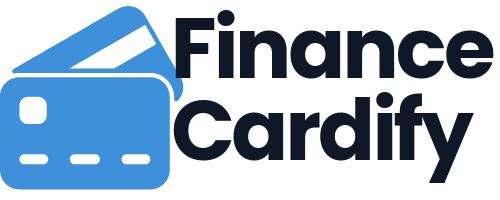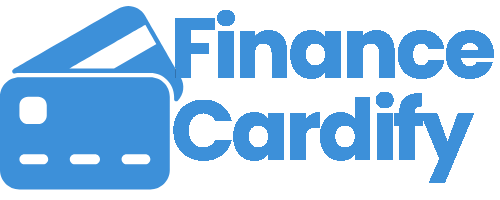In a world of rising costs, economic shifts, and growing financial responsibilities, mastering the art of financial planning is no longer optional—it’s essential. Whether you’re aiming to pay off debt, save for a big goal, or just stop living paycheck to paycheck, learning how to organize your finances in 2025 can put you on the path to true financial freedom.
This guide breaks down 7 practical steps to help you take control of your money, create a sustainable budget, and build the financial future you want—starting today.
1. Set Clear Financial Goals
Everything begins with a goal. What do you want your money to do for you in 2025 and beyond? Whether it’s saving for a down payment, building an emergency fund, traveling more, or investing for retirement, define your short-, medium-, and long-term goals.
Why this matters:
Clear goals give your financial plan direction. Without them, it’s like sailing without a compass.
Keywords: financial goals 2025, how to set money goals, personal finance planning
2. Know Where Your Money Goes
To manage your money, you first need to understand your current spending habits. Track every expense for 30 days—yes, every coffee, subscription, and impulse buy. Use an app, a spreadsheet, or pen and paper. The goal is to get a clear picture of where your money is going.
Tip:
Divide expenses into needs, wants, and savings. You might be surprised how much is going to things you don’t truly value.
Keywords: track expenses, spending habits, monthly budget planning
3. Create a Realistic Monthly Budget
Once you know your spending patterns, it’s time to create a budget. A good budget isn’t restrictive—it’s empowering. It gives every dollar a job and helps you align your spending with your goals.
Popular Method:
Try the 50/30/20 rule:
- 50% for needs
- 30% for wants
- 20% for savings and debt repayment
Pro Tip:
Budgeting works best when it reflects your actual lifestyle, not an ideal version of yourself.
Keywords: monthly budget 2025, budgeting strategies, realistic budget tips
4. Build or Rebuild an Emergency Fund
If there’s one thing the last few years have taught us, it’s that life is unpredictable. A solid emergency fund can save you from falling into debt when unexpected expenses arise.
Goal:
Save 3–6 months’ worth of essential expenses in a separate, accessible savings account.
Start Small:
Even $20 a week adds up over time. The key is consistency.
Keywords: emergency savings 2025, how to build an emergency fund, financial security tips
5. Tackle Debt Strategically
Debt can be a major roadblock to financial health. In 2025, make it a priority to pay off high-interest debt, especially credit card balances. Two common strategies:
- Avalanche Method: Focus on highest-interest debt first
- Snowball Method: Focus on smallest balances to gain momentum
Combine with budgeting:
Redirect extra funds from non-essential expenses toward your debt.
Keywords: debt repayment plan, how to pay off credit cards, debt-free strategies 2025
6. Automate Your Finances
Automation is a game-changer. It reduces the chance of late payments and helps you stay consistent with saving and investing.
Automate:
- Bill payments
- Transfers to savings
- Retirement contributions
- Debt payments
Why It Works:
It removes emotion and forgetfulness from your financial routine, making good habits automatic.
Keywords: automate savings, smart money habits, best financial tools 2025
7. Start Investing for the Future
You don’t need to be rich to invest. The sooner you start, the more time your money has to grow. In 2025, take the step—no matter how small—to begin investing consistently.
Options:
- Employer retirement plans (401(k), etc.)
- Roth or traditional IRAs
- Index funds and ETFs
- Robo-advisors for beginners
Key Principle:
Investing is a long-term game. Focus on consistency and time, not timing the market.
Keywords: investing for beginners 2025, long-term investments, how to start investing
Bonus: Review and Adjust Regularly
Life changes, and so should your financial plan. Set a reminder to review your finances monthly or quarterly. Adjust your goals, rebalance your budget, and track your progress.
When planning your finances, always follow ethical and responsible practices:
- Transparency: Be honest with yourself about your income, debt, and spending.
- Sustainability: Set goals and budgets that you can realistically maintain over time.
- Security: Use secure platforms for budgeting and investing; protect your personal financial data.
Stay informed, not overwhelmed. Education is your best investment.
FAQ – Financial Planning in 2025
1. How much should I save each month in 2025?
A good starting point is 20% of your income, based on the 50/30/20 rule. This includes emergency fund contributions, retirement savings, and other financial goals. If 20% feels too high, start with what you can—consistency beats perfection.
2. What’s the best way to get out of debt this year?
Use either the avalanche method (pay highest interest first) or the snowball method (pay smallest balances first). Combine this with a solid budget and consider consolidation if your interest rates are high.
3. Should I invest or pay off debt first in 2025?
It depends on your debt interest rate. If your debt has high interest (e.g., credit cards), focus on paying it off first. If it’s low interest (e.g., student loans at 3–4%), you can consider investing while making minimum payments on the debt.
With these 7 steps, 2025 can be the year you finally take control of your finances. No matter your current situation, progress is possible—one intentional step at a time.
Let me know if you’d like this turned into a downloadable PDF, blog post format, or visual slides for social media!


